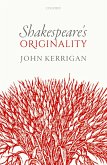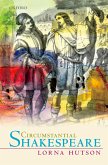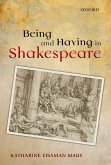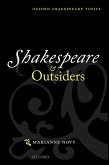Hamlet's father's Ghost asks his son to 'Remember me!', but how did people remember around 1600? And how do we remember now? Shakespeare and Memory brings together classical and early modern sources, theatre history, performance, material culture, and cognitive psychology and neuroscience in order to explore ideas about memory in Shakespeare's plays and poems. It argues that, when Shakespeare was writing, ideas about memory were undergoing a kind of crisis, as both the technologies of memory (print, the theatre itself) and the belief structures underpinning ideas about memory underwent rapid change. And it suggests that this crisis might be mirrored in our own time, when, despite all the increasing gadgetry at our disposal, memory can still be recovered, falsified, corrupted, or wiped: only we ourselves can remember, but the workings of memory remain mysterious. Shakespeare and Memory draws on works from all stages of Shakespeare's career, with a particular focus on Hamlet, the Sonnets, Twelfth Night, and The Winter's Tale. It considers some little things: what's Hamlet writing on? And why does Orsino think he smells violets? And it asks some big questions: how should the dead be remembered? What's the relationship between memory and identity? And is it art, above all, that enables love and beauty, memory and identity, to endure in the face of loss, time, and death?
Dieser Download kann aus rechtlichen Gründen nur mit Rechnungsadresse in A, B, BG, CY, CZ, D, DK, EW, E, FIN, F, GR, HR, H, IRL, I, LT, L, LR, M, NL, PL, P, R, S, SLO, SK ausgeliefert werden.









